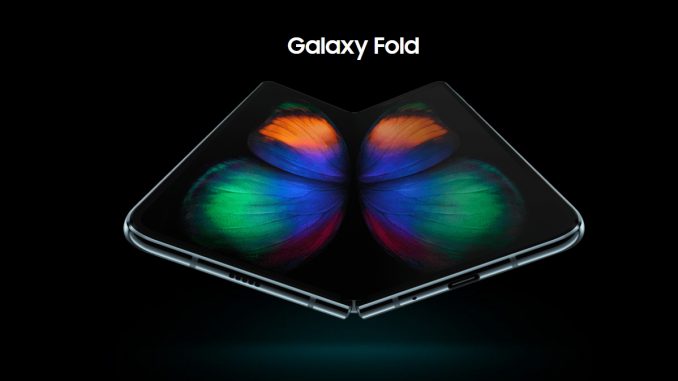
Samsung has sent reviewers their first folding smartphone, the Galaxy Fold, with a few of them already breaking.
Artículo disponible en Español | Article disponible en Français
Samsung is set to release the first folding smartphone on the market, the Galaxy Fold, on the 26th of April of this year, in a few days essentially. For this, the South-Korean manufacturer has already sent units to reviewers. Early reports from some reviewers point out at a great fragility of the device, with a few units already breaking down.
In some cases, it does look like some devices suffered from manufacturing issues and can thus be blamed on Samsung. But in most cases, the reviewers broke the unit themselves. Most of the issues come from the display, which is essentially a thin, fragile layer of plastic. From the reports, it seems this thin layer looks like a plastic protector that can be found on other smartphones, with the reviewers peeling it off.
Except it turns out this thin layer is actually the display, and by trying to take it off, reviewers have managed to break their units. Sure, Samsung is to blame due to their lousy design, due to putting a film that looks like it can be peeled off, assuming that including instructions stating to not touch this layer would be enough. Remember, the first rule when designing a product is to assume that the average consumer is dumb. This also raises another question: are these reviewers stupid or something? It’s their job to review the unit, and instead are not even able to unbox it without breaking it. As a defence of consumers, this often happens with Huawei devices, with some including, out of the box, a thin protective plastic on the display. Many consumers actually don’t notice this, and will buy a new protector, applying it on top of the already present protector. Worse, some will go as far as putting tempered glass on said protector, which ends up not sticking properly.
Coming back to the failing devices, it would seem Samsung decided to give these reviewers new units, no questions asked. This raises more questions than it answers: if a consumer breaks a device due to wrongly using it, the company doesn’t replace the device. Meanwhile, reviewers, who are supposed to be more experienced than consumers, break these devices and get a replacement, no questions asked. This is not exclusive to Samsung, with most other brands having the same attitude towards reviewers.
Finally, some fans of the South-Korean brand have come forward to defend the company, mentioning these were “pre-production” units and that the issues would be fixed by launch. Sure, the device is set to release in a few days, but these are not pre-production units, these are final units that will be shipped to customers. Companies will cherry-pick the best units for reviewers, in some cases even giving them some kind of limited edition with more accessories and a better unboxing experience. With the device set to release the 26th, the company cannot make last minute adjustments, as this is a manufactured product, not a digital product. Sure, the concept of early access and unfinished games is quite common in the gaming area, with companies capable of fixing bugs right before launch, but this is thanks to the ability to download patches. Meanwhile, if the physical product itself has problems, a patch cannot solve these, except with some specific issues, such as connectivity issues. Here, a patch cannot be issued addressing failing displays, otherwise Huawei would have done so back when they had the green screen issue on the Mate 20 Pro. Yet there, units were either swapped by new ones, or the display replaced.
This argument of “pre-production” units and such must disappear, as no, the company does not have time to fix issues at the last minute, especially when the product itself is set to be released a week after reviewers publish their review. If anything, when it comes down to hardware, most of the engineering and design is completed months ahead of release, with just last-minute changes done to availability on some markets, or special editions announced after release.
In any case, Samsung has decided not to delay the release of their Galaxy Fold, still scheduled to release on the 26th in the US and costing 1 980$ (2 000€ in Europe). The company did release a statement, stating they would inspect the “faulty” units, but did not provide more information.
In Europe, the Samsung Galaxy Fold should be up for pre-order the 26th, and releasing on May 3rd, unless the company decides to delay the release.
More on this subject:


